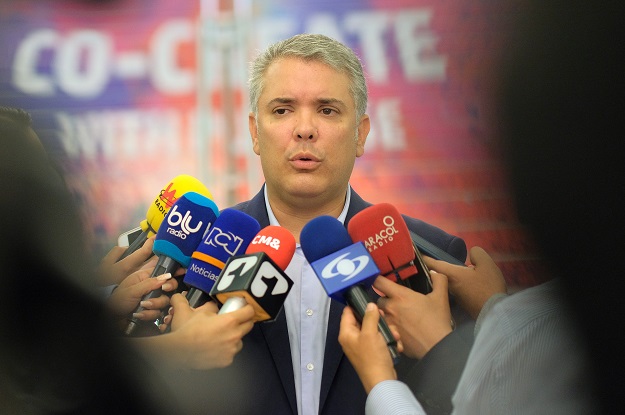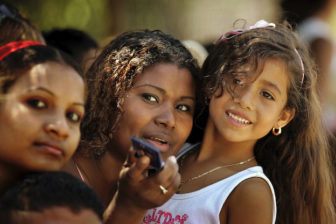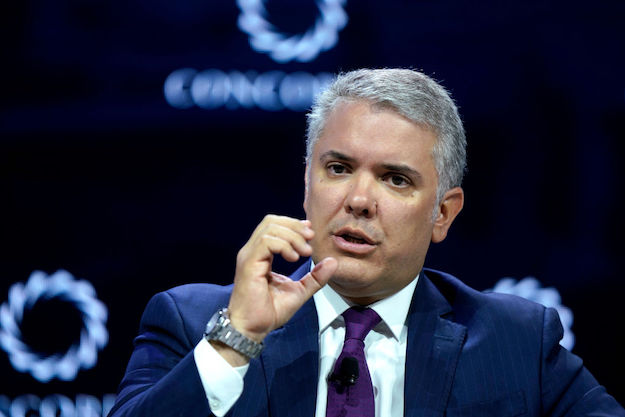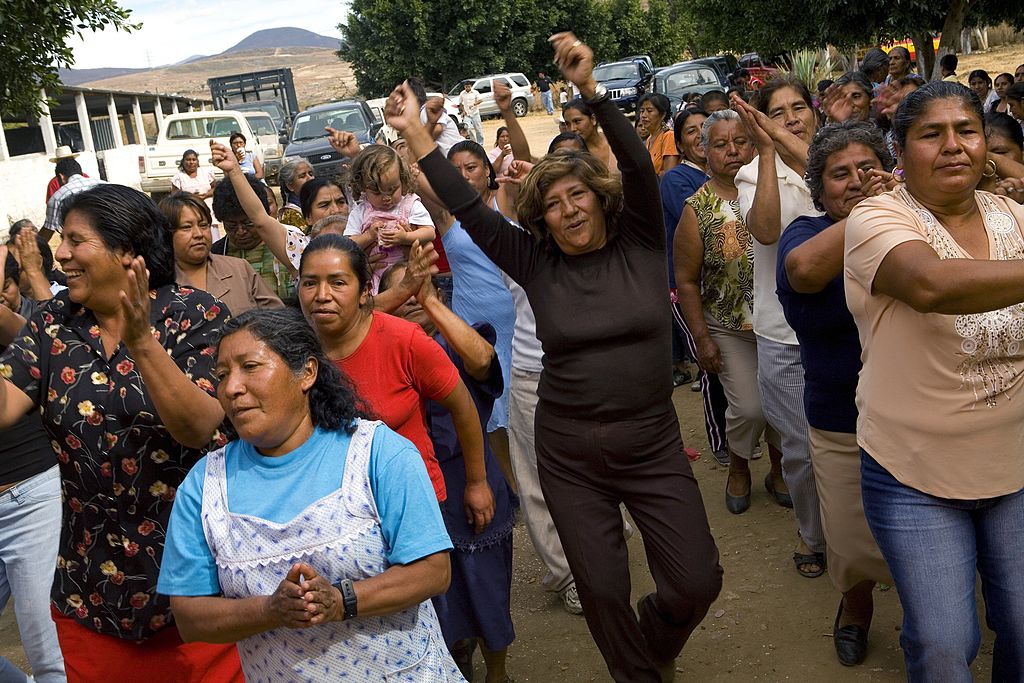BOGOTÁ – There was little to celebrate when Colombian President Iván Duque marked his first anniversary in office on Aug. 7. Duque entered his second year with his approval rating under 40%, and few signs of a positive trajectory.
To understand how Duque got here involves a look at how he has approached two of his central campaign promises.
A pledge to reform Colombia’s 2016 Peace Accord between the government and the Revolutionary Armed Forces of Colombia (FARC) became Duque’s main talking point on the campaign trail. But Duque’s effort to guarantee what he described as “peace without impunity” has hit roadblocks, damaging his image.
Duque’s second-most salient proposal during the campaign was the development of Colombia’s creative industries, grouped into what he calls the “Economía Naranja,” or Orange Economy. Like his approach to the peace accord, Duque’s struggle to make progress toward this promise offers clues to how his government can get back on track.
Reforming the peace accord
Before he was inaugurated, Congress passed a bill that defined the attributions and responsibilities of the newly created Peace Jurisdiction (JEP), the court tasked with judging the members of the FARC accused of committing crimes during the conflict. After Colombia’s Constitutional Court deemed that bill constitutional, it went to the president to sign into law. However, Duque decided to use his veto powers and returned the bill to Congress.
However, Duque suffered a crushing defeat in both the Senate and the House of Representatives that forced him to sign the bill into law. It was a disastrous political move for the president that showed his incapacity to work with the majority of Congress. The move also stalled vital legislation promoted by the executive branch, such as a judicial reform and the National Development Plan, a constitutionally mandated four-year plan for Colombia’s public policy sectors.
While fears that Duque would simply not comply with the peace agreement were exaggerated, his progress on some parts of the accord have been uneven. As the Colombian online news portal La Silla Vacía showed, Duque’s government has made some progress in the reincorporation of guerrilla members to society, as well as some parts of the accord that concern rural development and victims. The grey spots, however, appear on the points of the accord that established changes in the political participation of different sectors of the Colombian society, as well as changes to Colombia’s approach to the war on drugs.
However, this administration has struggled the most in tackling one of the key issues related to peace: The systematic assassination of social leaders in the country. Since the peace accord was signed in 2016, the number of leaders that have been assassinated has surged to around 700, as well as the number of former guerrilla members that has reached 150. Not all of them have occurred during Duque’s presidency but his response has been less than satisfactory.
Finally, Duque has also decided to end the peace talks with the National Liberation Army (ELN), the last guerilla army of its kind in Colombia. This has been one of the least controversial decisions he has made since the ELN conducted a suicide terror attack at the Colombian National Police Officers Academy in Bogotá. The attack left 22 cadets dead and was met with widespread condemnation. The moment that could have helped him regain some of his presidency’s lost momentum, was squandered when the president decided to ignore the protocols that the former government had signed with the ELN and announced that he would incarcerate the ELN leadership once they arrived in Colombia from Cuba, where peace talks had been taking place. That decision splintered support for the president, since ignoring the agreements is a breach of the state’s international obligations under the talks.
The Orange Economy
Duque’s other major policy proposal has been the promotion of the “Orange Economy,” which he defines as basically every sector of the economy that centers on creative products, including design, education, culture, programming, computer sciences and so on. The government argues that today this sector represents about 3.6% of Colombia’s GDP and that a growth in this sector would bring great benefits. This idea has been criticized as ill-defined and lacking technical foundations, and therefore many doubt its usefulness in creating jobs or growing GDP. Either way, the Duque government hasn’t introduced any legislation or presented a comprehensive plan to boost this sector. Even though it is still one of the president’s main talking points, his government has failed to translate its rhetoric into policy proposals.
Meanwhile, several factors concerning the economy’s health are starting to sound alarms. While Colombia is still one of the fastest growing economies of Latin America, with an estimated growth of 3.0% of the GDP for 2019, the unemployment rate has been rising for the last few years and stands now at double digits. A related topic that worries economists is the current account deficit, which sits at close to 4% of GDP, even though the Colombian peso is at its weakest in relation to the dollar, hovering around 3.400 pesos.
Ultimately, the root of Duque’s challenges in government are related to two main issues: first, his political party, Centro Democrático (Democratic Center), does not behave as a party in government. His relationship with Congress has been difficult and has prevented him to have a satisfactory level of approval for his main initiatives. His party, further, is not helping him construct political agreements within the legislative branch. Second, since Duque is a new political figure who wanted to run a moderate mandate, he decided to appoint individuals that have little experience in public or political office, and who have thus made a lot of mistakes. He presented the decision to appoint them as a step toward a more meritocratic public service, but the fact is that they are climbing the learning curve too slowly. They do not know how to handle the traditional political class, the media and public opinion, and their frequent public relations gaffes have affected Duque’s approval ratings in a very significant way. Duque has responded that he is not paying attention to media and pundits, and that his goal is to be efficient and not popular. However, without high approval ratings, he won’t have into political capital.
And without political capital, it is not very likely that the following three years of Duque’s mandate will be much better than his first.
—
Borda is an associate professor of political science at Colombia’s Universidad de Los Andes. Gómez is a political scientist at the Universidad de Los Andes.






